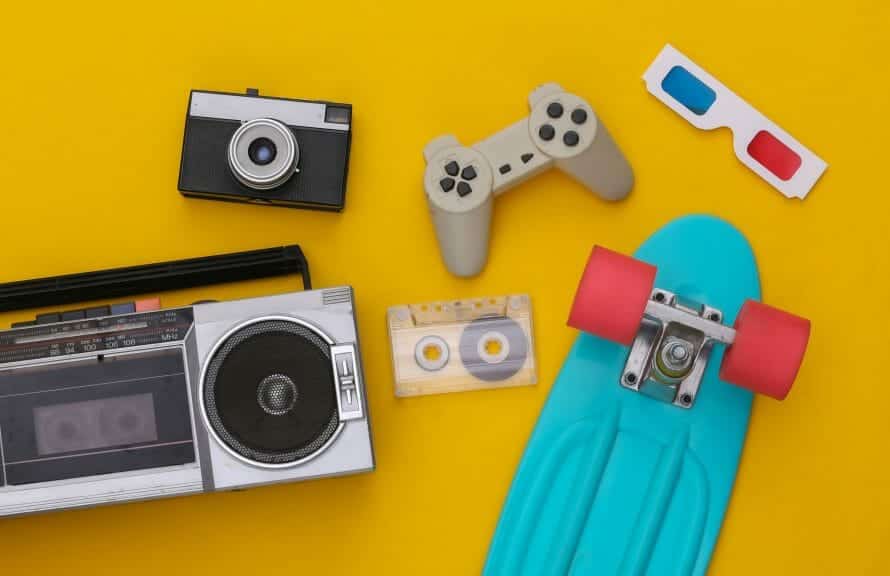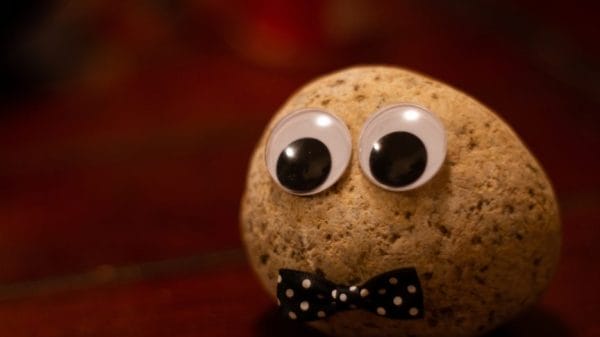I placed the DVD in the player and then walked back to the couch. I plopped down, excited to delve into the dinner before me. The meal was not the main event, though. I fiddled with the remote for a moment before I was greeted by a familiar voice:
“This Disney DVD is enhanced with Disney’s FastPlay!”
I was watching Beauty and the Beast (1991), the origin of my favorite princess growing up. I liked Belle because she enjoyed reading, as my young self did. Even the previews reminded me of my childhood filled with animated movies. I recall my sister’s and my own amusement at Gaston’s song; I am surprised by how much I remember the lyrics! The film comforted me after another day of work and college class, taking me back to when I did not need to worry about either.
Nostalgia is a source of sentimental comfort for many. We find pleasure in looking back at happy times, especially when things go downhill in the present. This phenomenon results in both advantages and disadvantages to one’s mental health, depending on how one engages with it.
What is Nostalgia?
Nostalgia is defined by Britannica as “pleasure and sadness that is caused by remembering something from the past and wishing that you could experience it again.” It is a mixed bag. While we find joy in reminiscing, there may be that tinge of yearning for these times. This longing is sometimes so severe that nostalgia was once regarded as a mental disorder. It was associated with homesick soldiers and immigrants, causing concern due to resulting anxiety, depression, and/or sleep or appetite changes.
Today, nostalgia is not labeled as a clinical condition. We link it to shows we watched as kids and old holiday traditions. From “Disney Adults” to the Barbie (2023) movie, current media abounds with nostalgic references. Entire accounts are dedicated to nostalgia, bringing users together to uncover shared memories and experiences.
Types of Nostalgia
Nostalgia is a subject of interest for many researchers, including Dr. Krystine Batcho. In “Speaking of Psychology,” a podcast by the American Psychological Association, Dr. Batcho describes two types of nostalgia: personal and historical. Personal nostalgia fits the more colloquial definition of the concept. It includes a fondness for one’s own experiences. For instance, I often experience such nostalgia around Christmas, finding enjoyment in decorating with ornaments my family has owned for as long as I can remember.
Dr. Batcho describes historical nostalgia as “a longing for times in history that predate their own birth.” One wishes they lived during the “Roaring 20’s” or even far back as the Renaissance. Tales of times past may resonate with people of the present. The popular series Stranger Things on Netflix encapsulates this idea. While many viewers did not live through the 1980s, the clothes, music, and Dungeons & Dragons references appeal to fans. An era with no cell phones and riding bikes freely with friends feels simpler, almost idyllic – aside from the demogorgons. Still, it is important to remember that this is an idealized version of what life was like back in the day; human history has always been complicated and harsh, and we cannot escape the issues of the present by returning to the past.
Nostalgia and Well-Being
Nostalgia is bittersweet, prompting both positive and negative reactions. Newman et al. (2020) found that while nostalgia is beneficial “when generated on request,” it is detrimental to one’s well-being when “experienced in the course of everyday life.” Essentially, when nostalgia was induced in an experimental setting, it was more beneficial than when measured in a person’s day-to-day life. In my opinion, this could imply a need for moderation in nostalgia. It is useful when applicable to the situation, but constantly wishing for an era long gone could prove unhealthy.
Nonetheless, nostalgia certainly has its advantages. Wildschut et al. (2006) state that nostalgia “bolsters social bonds, increases positive self-regard, and generates positive affect.” Additionally, Zhou et al. (2011) found that it “increases tangible charitable behavior.” In other words, nostalgia supports a connection with oneself and others. It fosters empathy and altruism while promoting uplifting emotions and self-image.
My favorite example of this social aspect of nostalgia is Taylor Swift’s “The Best Day,” a song dedicated to the artist’s mother. The lyrics recall Swift’s childhood spent with her family, expressing gratitude for the love that surrounded her. She looks back on playing as a child and her mom comforting her after a difficult day at school. The lyric video includes Swift’s family photographs and home videos, showing this part of her life that she holds dear.
A Special Place In Our Hearts For The Past
While the past is behind us, it can still hold great value for the present. I enjoy quoting Ratatouille (2007) with my sister and looking at photo albums with my family. My friends and I are bonded by shared experiences as we talk about the toys we played with as early 2000s kids or that one time at band camp. We can appreciate the influence of the past while ensuring we live in the present. After all, one day, we may find ourselves longing for right now.














